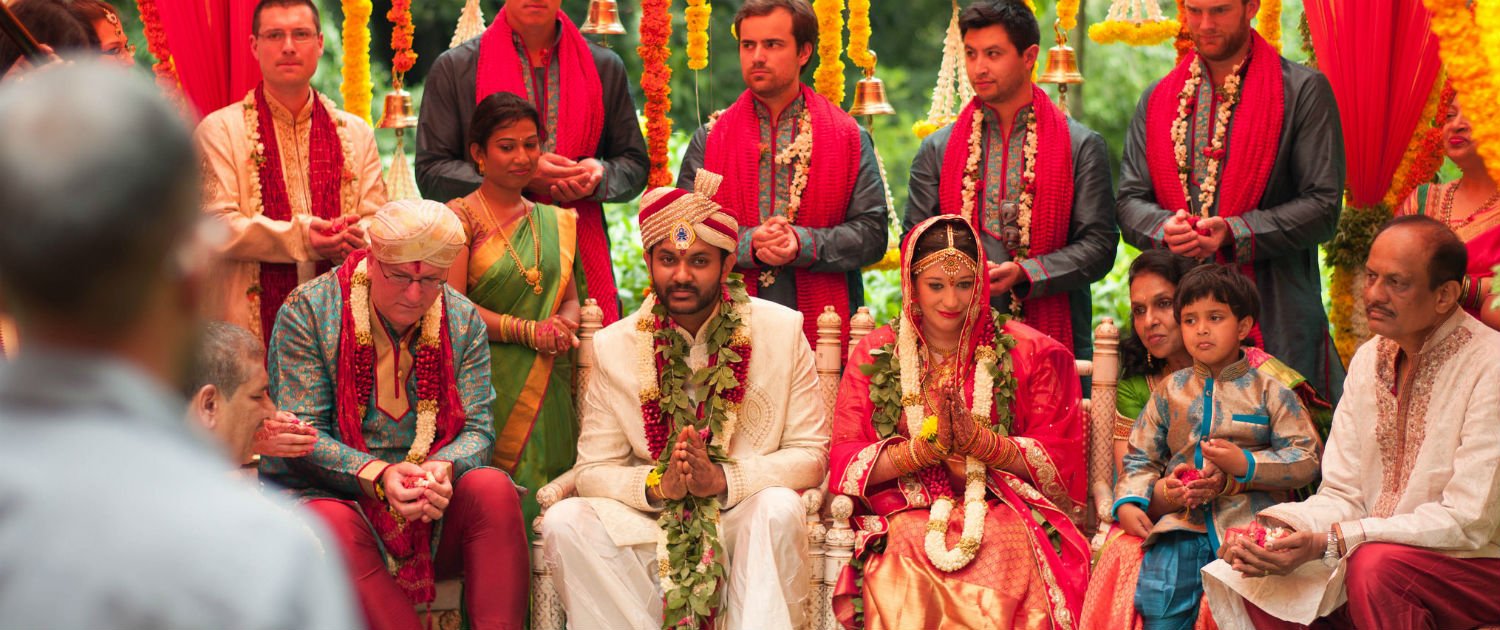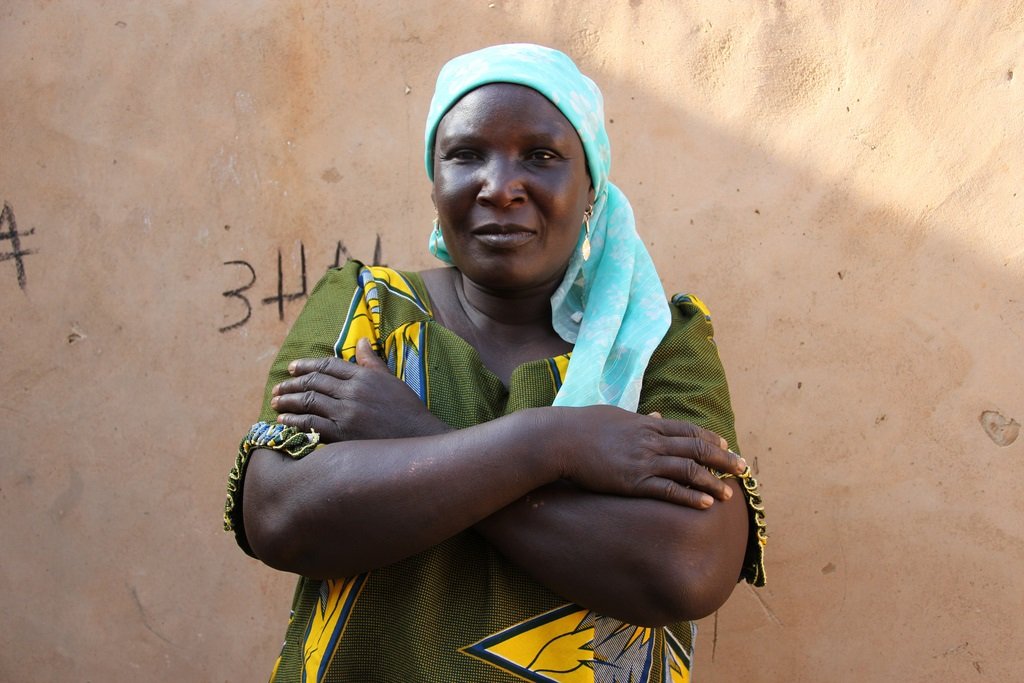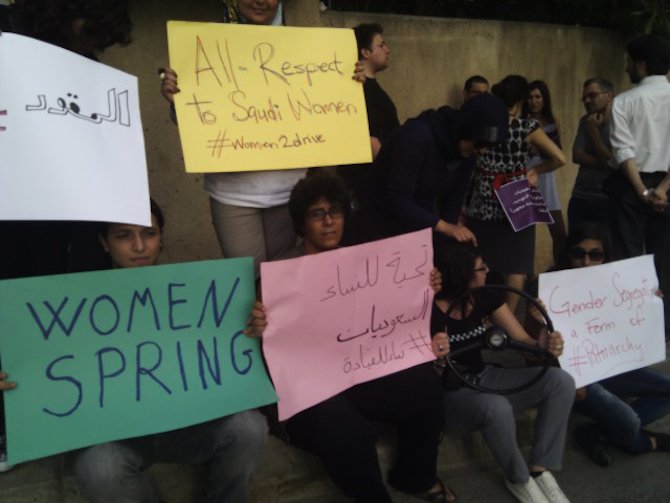UPDATE: This article was originally published in March 2016 as "10 Ridiculously Sexist Laws You Won't Believe Still Exist". Since then, there has been incredible progress made on sexist laws in Tanzania, Malta and Pakistan! Read on to find out more.
There are still too many laws that make the world a harder place to be if you’re a woman. From a ban on women driving trains or tractors in Russia, to countries like Yemen where marital rape is still legal, sexist laws persist across all corners of the globe. Some sound ludicrous in this day and age, whilst some are deadly, denying women fundamental legal rights in the face of violence against their bodies.
Here are 10 discriminatory laws that have no place in the 21st century:
1) A woman 'must permit her husband to have legitimate intercourse with her when she is fit to do so.'

When it comes to sex, "no" still does not mean "no" in some parts of the world. In Singapore and India, non-consensual sex within marriage is not a criminal offence, and does not constitute rape as long as the wife is above a certain age – 15 years old in India, and only 13 in Singapore. In Yemen, where child marriage is rife, there is no lower age limit to define rape in marriage.
PROGRESS UPDATE: In October 2017, India took a massive step forward for girls' rights when it ruled that if a man has sex with his wife when she is aged between 15 and 18, it is considered rape. The age of content in India is 18, but previously there was a loophole in that legislation if a man was married to an underage girl, but that loophole has now been closed. Child marriage is illegal in India, but it is still widespread in parts of the country.
2) A 15-year-old girl can marry any man older than 18.

The 1971 Tanzania Law of Marriage Act sets the legal marriage age for boys at 18, while girls can be married as young as 15 with their parents’ consent. Why is the legal age for marriage lower for girls than for boys? The outrage provoked by the sight of a child bride in the middle of New York City should extend to the reality of child marriage for millions of girls around the world. In Tanzania, this outrage has already taken hold and a grassroots organisation, Youth For Change, is calling for the marriage age to be raised to 18 in all cases, creating a fairer future for children of all genders.
PROGRESS UPDATE: In July 2016, Tanzania took a huge step toward eliminating child marriage. Now, a man who marries or impregnates a school-age girl faces up to 30 years in prison. Unfortunately, loopholes still remain and girls can still get married off at 15 with parental consent or at 14 under court order if special circumstances exist.
Take action now and call on the Tanzanian government to remove all child marriage loopholes.
3) In terms of nationality, women in countries like Jordan, Lebanon, and Monaco are effectively second-class citizens.

Laws affecting a person’s national identity continue to discriminate against women. In Jordan and Lebanon, a child needs a Jordanian or Lebanese father to automatically gain citizenship. Their mother’s nationality is not passed on, so if a Jordanian woman is married to a foreign husband, her children do not have the right to become Jordanian citizens, and are therefore often denied access to vital public services like healthcare and education.
4) In Malta, if you kidnap someone and marry them, you don’t need to go to jail.

Until 2016 in Malta, a kidnapper could technically avoid punishment if they convinced the victim to marry them. “If the offender, after abducting a person, shall marry such person, he shall not be liable to prosecution, except on the complaint of the party whose consent, according to the civil laws, would be required for the marriage.” While this exception is not routinely enforced, it highlights the way many laws still lean in favour of the attacker. Malta is not alone in this. In Lebanon, men can legally be exempted from prosecution in the event of marriage after rape or kidnapping.
PROGRESS UPDATE: At an event hosted by Global Citizen and CHIME FOR CHANGE in March 2016, the Maltese government committed to level the law and repeal this sexist clause from its criminal code.
5) A husband can beat his wife as long as he does not cause grievous bodily harm.

Laws that sanction the use of force against women in marriage highlight the persistent idea that a woman is still her husband’s property and therefore subject to his demands. There are 46 countries in the world which do not provide any legal protection against domestic violence. In Nigeria, it is within a husband’s legal rights to beat his wife “for the purpose of correcting” her, as long as it does not cause grievous bodily harm.
6) In Chile, Tunisia, and the UK, a man deserves to inherit more than a woman.

In Tunisia, a 1956 law explicitly states that, “where there are any sons, the male inherits twice as much as the female,” as though a male life is twice as valuable as a female life. This kind of discrimination is seen in inheritance laws far and wide. British aristocrats are currently seeking to overturn the principle of primogeniture, which states that a family’s estate must be passed down to the eldest son, no matter how many daughters were born first. And it was only in 2012 that sexism in the line of the succession to the throne was wiped out and the first born child, whatever gender, became first in line to the throne. While inheritance laws might perpetuate inequality by rewarding "the accident of birth," it’s a sad fact when the thing that unifies the richest and the poorest is gender discrimination.
7) In Cameroon, a man can stop his wife from taking a job.

Cameroon is one of 18 countries where a husband can prevent his wife from taking a job if they believe it is not in the best interests of the family, leaving women at risk of remaining trapped in poverty with no independent income.
8) Women in Saudi Arabia are still not allowed to drive cars.

A fatwa imposed in 1990 makes Saudi Arabia the only country in the world where women are forbidden to drive. While this is not an official law, a fatwa is a religious declaration that carries the authority of law, imposing strict modes of behaviour. Despite repeated campaigns by brave women taking the radical step of sitting behind a steering wheel (and sometimes driving short distances), the ruling has still not been overturned.
Two women held in a 'terror' court in #SaudiArabia for driving and voicing their opinions online http://t.co/J76V2Phkc5#saudiwomendriving
— GAPS-NoWomenNoPeace (@Nowomennopeace) January 11, 2015
Saudi Arabia’s recent progress in women’s rights does offer some hope though. Saudi women were allowed to vote in municipal elections for the first time last year, resulting in 19 women gaining seats in local authorities — a landmark moment in the country’s recent history. However, there are too many things Saudi women still cannot do in a country where their human right to freedom of movement is routinely denied.
9) In some courts of law, a man is more trustworthy than a woman.

Equality before the law can never exist if a woman’s voice counts for less in legal proceedings. Yet in countries like Pakistan and Iran, a woman’s voice is not given equal weight. For certain offences in Iran, evidence from two women is required alongside only one testimony from a man, implying that a woman’s evidence is half as valuable.
10) 'Honor killings' are a less serious offence than standard murder.

The punishment for the murder of a woman perceived to have brought "dishonor" on a family in both Egypt and Syria is less severe than the penalty for other forms of murder. According to Syrian law,“He who catches his wife, sister, mother or daughter by surprise, engaging in an illegitimate sexual act and kills or injures them unintentionally must serve a minimum of two years in prison,” while the punishment for murder is 20 years hard labor. This is not to sanction the use of hard labor as a humane form of punishment, but to point to the harsh reality that violence against women is often not treated as severely as other serious crime. Until 2016 in Pakistan, perpetrators could legally escape without punishment if they received a pardon from the victim's family.
PROGRESS UPDATE: In a long-awaited victory for women's rights, Pakistan has passed a law instituting a mandatory sentence of 25 years imprisonment for those convicted of "honor killings." The tragic murder of social media star Qandeel Baloch in July 2016 provoked international outrage and a national debate over "honor killings," intensifying the movement to stregthen the law against "honor killing." More than 31,000 Global Citizens took action to join the collective cry. In collaboration with Equality Now, Global Citizen, CHIME FOR CHANGE and Academy Award-winning filmmaker Sharmeen Obaid-Chinoy advocated for the Anti-Honor Killings bill, which passed in October 2016.
Inequality in the eyes of the law is one of the biggest barriers to the empowerment of girls and women. The problem is pervasive — 90% of the world’s countries have at least one law that restricts women’s opportunities.
Too many women are denied their essential human rights by laws that discriminate on the basis of gender. But the progress made against sexist laws in Tanzania, Malta, and Pakistan proves that public pressure can drive change. Whether it's through tackling child marriage, outlawing all forms of violence against women, or giving women autonomy over their own careers, ending institutional inequality must start now. Sexist laws have no place in the twenty-first century.
*For a comprehensive list of discriminatory laws against women around the world, check out Equality Now's Ending Sex Discrimination in the Law.